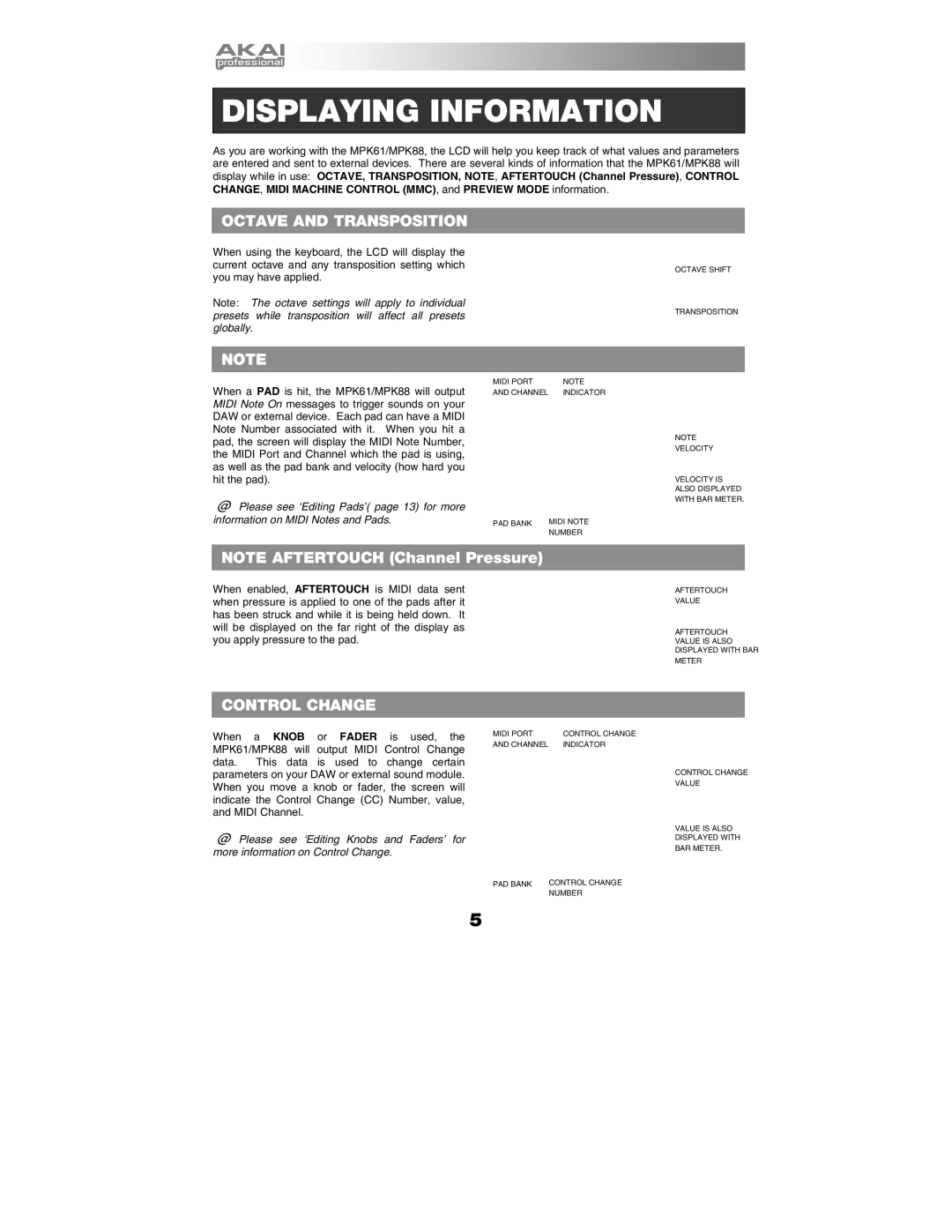
DISPLAYING INFORMATION
As you are working with the MPK61/MPK88, the LCD will help you keep track of what values and parameters are entered and sent to external devices. There are several kinds of information that the MPK61/MPK88 will display while in use: OCTAVE, TRANSPOSITION, NOTE, AFTERTOUCH (Channel Pressure), CONTROL CHANGE, MIDI MACHINE CONTROL (MMC), and PREVIEW MODE information.
OCTAVE AND TRANSPOSITION
When using the keyboard, the LCD will display the current octave and any transposition setting which you may have applied.
Note: The octave settings will apply to individual presets while transposition will affect all presets globally.
OCTAVE SHIFT
TRANSPOSITION
NOTE
When a PAD is hit, the MPK61/MPK88 will output MIDI Note On messages to trigger sounds on your DAW or external device. Each pad can have a MIDI Note Number associated with it. When you hit a pad, the screen will display the MIDI Note Number, the MIDI Port and Channel which the pad is using, as well as the pad bank and velocity (how hard you hit the pad).
Please see ‘Editing Pads’( page 13) for more information on MIDI Notes and Pads.
MIDI PORT | NOTE |
AND CHANNEL | INDICATOR |
PAD BANK MIDI NOTE NUMBER
NOTE
VELOCITY
VELOCITY IS ALSO DISPLAYED WITH BAR METER.
NOTE AFTERTOUCH (Channel Pressure)
When enabled, AFTERTOUCH is MIDI data sent when pressure is applied to one of the pads after it has been struck and while it is being held down. It will be displayed on the far right of the display as you apply pressure to the pad.
AFTERTOUCH
VALUE
AFTERTOUCH
VALUE IS ALSO DISPLAYED WITH BAR
METER
CONTROL CHANGE
When a KNOB or FADER is used, the MPK61/MPK88 will output MIDI Control Change data. This data is used to change certain parameters on your DAW or external sound module. When you move a knob or fader, the screen will indicate the Control Change (CC) Number, value, and MIDI Channel.
Please see ‘Editing Knobs and Faders’ for more information on Control Change.
MIDI PORT | CONTROL CHANGE |
AND CHANNEL | INDICATOR |
CONTROL CHANGE VALUE
VALUE IS ALSO DISPLAYED WITH BAR METER.
PAD BANK CONTROL CHANGE NUMBER
5
